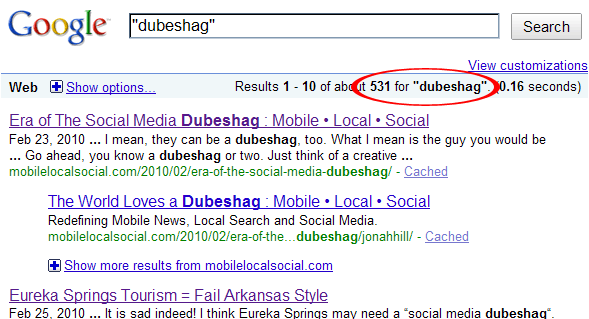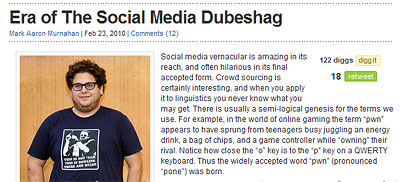
Polarizing an audience does not mean that you are telling them to go away or that you do not appreciate them. When you polarize your audience, you set yourself apart from the crowd and you often gain respect. If somebody does not respect you for who you are, you probably did not need that respect anyway.
I am first going to explain what I mean by polarizing an audience, and then give you my recent example that happened with an article I wrote titled “Era of The Social Media Dubeshag”.
Stop Trying to Make Everybody Happy!
Sure, you are in business, and you want to be certain that anybody and everybody will want to buy your products or service. You want everybody to love you, I get it. Have you ever considered the downsides? Yes, the downsides can be that your biggest fans are indifferent. They are not the kind who will drag their friends, family, and complete strangers kicking and screaming to buy your brand.
Looking around the business world, you can see many very successful instances of polarizing an audience. A good example may be in Apple Computer’s decision to not support Adobe Flash Player in their iPhone and iPad products. Other examples are available in the soft drink market with Coke and Pepsi, and extreme examples occur in politics. Who wants a wishy-washy politician, anyway?
Do Facebook and Google Polarize Their Audience?
Once you know your brand, stand strong to it. I don’t mean going around and intentionally making people mad at you, but don’t be a chicken either. Just look to Facebook for an example. Facebook is not at all afraid to polarize their audience. They are in the news for it every time they make a big change, but you don’t hear them apologize for how they run their business, or the culture of their brand. Does it work for Facebook? Consider this: If Facebook was a country, it would be the third largest in the world with over 500,000,000 (yes, five hundred million) users.
Google battles against whole countries, like China and recently Italy. I don’t think I need to go into a lengthy argument of how Google polarizes their audience. They are famously polarizing, just as most massively successful brands are.
Sure, you can say that Facebook and Google do not have any real competition, but they do, and in huge order. Many people just don’t look at them as having competition because they are so extremely large and tower over their competitors. In any case, consider who you hear more polarizing stories from … Google or Dogpile?
Pleasing Everybody Satisfies Nobody
I have said it many times that “I do not try to please everybody, and that pleases some people very much.” I strongly believe in this statement and it is with me at all times. What it means to me is that I will not waiver from who I am just to make people like me. It seems that if they do not like me, they dislike me with emphasis. Conversely, if they like me, they like me very much and they are brand-loyal. I try to leave very little room for indifference.
So What About This Dubeshag Article?
I created a new word for our chubby or less-than-Clark-Gable friends in the social media world. I called them “dubeshags”. The genesis of the word was in good humor, and there is what some would call a very funny back-story. You can read the article and judge for yourself.

It polarized an audience in a pretty big way. I was accused of all kinds of crimes of social media for writing it, such as using popular names to build popularity. I explained my reason for writing it in an addendum to the article and it included the statement as follows:
If you think I wrote it for attention, I would have left it as a draft if I didn’t want people to read it. Sure, I want it to be read. Maybe you just blog for the entertainment of your cats, but I do it for public consumption.
The moral of the story is this: Whether people loved it or hated it, the word “dubeshag” is no longer a secret. In roughly 36 hours, dubeshag went from zero listings in Google and no recognition at all to over 500 listings in Google (and later over 25,000); over 120 Digg.com diggs; a handful of votes on Mixx.com, Reddit.com, and StumbleUpon.com; was re-blogged on many blogs; has been tweeted to hundreds of thousands of Twitter users; created an interview on Social Blade; and has flattered a few of the dubeshags who were mentioned.
Who cares if it made a few people pout? Certainly not this author.
Author’s Addendum: This was a strange example, but it does show a few key things pretty clearly. It shows that original content can spread fast. It shows that with a little know-how, you can build a lot of incoming links. It shows that even if you step on a couple toes, you can still be very well branded and have an audience like the kind I mentioned … the ones who will tell a lot of people.
It is funny that since I wrote this and was away for an event at my son’s school for a couple hours, the number of listings for dubeshag on Google keeps going up. In a short time it increased to tens of thousands of pages talking about dubeshag, and linking to the article. So it should kind of make a person wonder what happens when you do that several times per day? What happens if you do it for six months, a year, or longer?
It amazes me how some people still wonder if this whole SEO and social media thing is really worth looking into or not. To those in doubt, I hope I have given you some food for thought, and I hope you will investigate further. Stick around and read some more. You may find that there is a lot more to it than you think.
 Eureka Springs, Arkansas is a lovely little tourist destination … blah blah FAIL!
Eureka Springs, Arkansas is a lovely little tourist destination … blah blah FAIL!